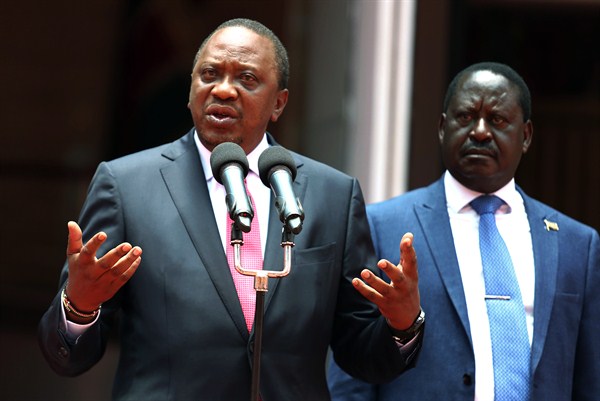The agreement that helped stave off a political crisis following the 2017 presidential election has also recast politics in Kenya. The future is looking no less fraught than the past.
This time last year, Kenya was recovering from a bitter presidential election that descended into a constitutional crisis between two longtime political adversaries. After an initial ballot was annulled by the Supreme Court for irregularities, incumbent President Uhuru Kenyatta won a repeat election that opposition leader and perennial presidential candidate Raila Odinga boycotted. Amid rising tensions, Odinga rejected the outcome and subsequently proclaimed himself the “people’s president” in an unofficial swearing-in ceremony.
One year later, the agreement has continued to hold. A rebalancing of politics in Kenya seems to be underway as the country already begins to look toward the next election in 2022. “I don’t think Kenya actually had any breathing space between the previous protracted, confusing and violent electoral cycle and the upcoming one, which may be even more decisive and more hotly contested than the previous two or three electoral cycles,” says Robert Besseling, executive director of the risk analysis firm Exx Africa.

